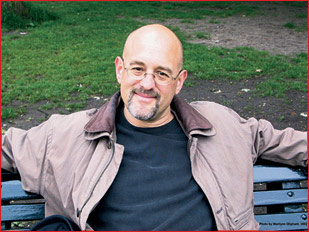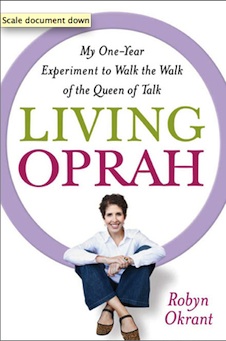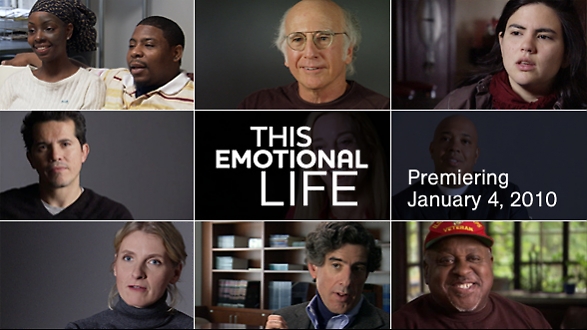 Photo © Marilynn Oliphant
Photo © Marilynn Oliphant
“This is an intellectual odyssey of mine,” Gilbert told me yesterday, when I had the opportunity to interview him. “It feels like being a student again, like learning a new trade, and that’s where the joy is for me.” Gilbert does this well too–gathering an eclectic group of experts to weigh in on happiness from varied perspectives. For example, in episode one, which concentrates on relationships and their role in our emotional well-being, Dr. Xavier Amador, a clinical psychologist and relationship expert helps a married couple on the show work through some of their problems. In episode three, which examines happiness and resilience from different vantage points, happiness expert Edward Diener pinpoints some universal traits of happy people, one being religion. Says Diener: “We know that in most societies, religious people are happier than non-religious people. Not everywhere but almost everywhere in the world we found that.”
Many celebrities are interviewed throughout the documentary, as well, adding an entertainment value. “It was fun introducing my wife to Richard Gere,” says Gilbert, “but I didn’t know if I was ever going to get her back. And I’ve been a fan of Chevy Chase for years.” Other celebrities include Larry David, Elizabeth Gilbert, Alanis Morissette, and Katie Couric.
But by far the most important sound bites, says Gilbert, are the stories of everyday folks. “The greatest surprise in putting the documentary together,” Gilbert explained to me, “is that I thought interviewing the living laboratory, the persons in the trenches, would be my job, but that the great fun would be interviewing the scientists. It was actually reversed.”
Gilbert went on about some the stories that touched him deeply, among them a woman named Michele Gosset who has been diagnosed with ovarian cancer, but won’t surrender to the illness. She uses meditation, positive thinking, and her faith to pull her through.
What message does the Harvard psychologist and his production team ultimately hope to convey with the series? Says Gilbert: “Here are the three important facts about happiness that have become the themes for each of the shows: 1) You can’t be happy alone. Social relationships are the single most important ingredient of happiness. They are key. 2) You can’t be happy all the time. We have to experience negative emotions as part of being human. But it’s HOW we experience negative emotions that count. 3) You can be happier than you are. There are universal traits of happy people that you can implement to raise your happiness level.”
* Click here to subscribe to Beyond Blue and click here to follow Therese on Twitter and click here to join Group Beyond Blue, a depression support group. Now stop clicking.

